Grass clippings as mulch or compost?
limpiefoot
15 years ago
Featured Answer
Sort by:Oldest
Comments (13)
digdirt2
15 years agoRelated Professionals
Maple Valley Landscape Architects & Landscape Designers · Brentwood Landscape Architects & Landscape Designers · Erie Landscape Architects & Landscape Designers · Mountain Brook Landscape Architects & Landscape Designers · Alexandria Landscape Contractors · Hayden Landscape Contractors · Lexington Landscape Contractors · Paramount Landscape Contractors · Pueblo West Landscape Contractors · St. Louis Landscape Contractors · West Chicago Landscape Contractors · Vadnais Heights Landscape Contractors · Aventura Decks, Patios & Outdoor Enclosures · Glasgow Decks, Patios & Outdoor Enclosures · Urbana Decks, Patios & Outdoor Enclosuresdigdirt2
15 years agorobertz6
15 years agotclynx
15 years agoadirondackgardener
15 years agognomey
15 years agoKimmsr
15 years agojoepyeweed
15 years agomulchmamma
15 years agocali1023
15 years agoschoolhouse_gw
15 years agoadirondackgardener
15 years ago
Related Stories

GARDENING GUIDESNew Ways to Think About All That Mulch in the Garden
Before you go making a mountain out of a mulch hill, learn the facts about what your plants and soil really want
Full Story
GARDENING GUIDESHow to Pick a Mulch — and Why Your Soil Wants It
There's more to topdressing than shredded wood. Learn about mulch types, costs and design considerations here
Full Story
GARDENING GUIDESGet on a Composting Kick (Hello, Free Fertilizer!)
Quit shelling out for pricey substitutes that aren’t even as good. Here’s how to give your soil the best while lightening your trash load
Full Story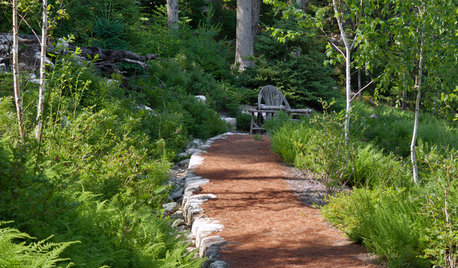
GARDENING GUIDES5 Things to Know About Weeding and Mulching Your Native Garden
What’s the best time to pull weeds? How thick should the mulch be? Here’s the scoop for a healthy landscape
Full Story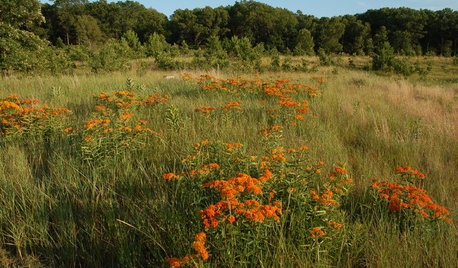
GARDENING GUIDESThe Art of Green Mulch
You can design a natural garden that doesn’t rely on covering your soil with wood and bark mulch
Full Story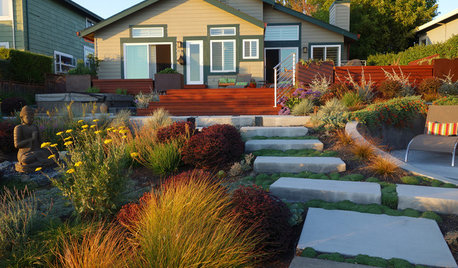
INSPIRING GARDENSInside Houzz: A Waterfront Property Ditches the Grass for a Garden
New drought-tolerant plantings and outdoor gathering spaces help this California backyard take in the view without wasting space or water
Full Story
LANDSCAPE DESIGNIs It Time to Consider Fake Grass?
With more realistic-looking options than ever, synthetic turf can be a boon. Find the benefits and an installation how-to here
Full Story
GARDENING GUIDESGarden Myths to Debunk as You Dig This Fall and Rest Over Winter
Termites hate wood mulch, don’t amend soil for trees, avoid gravel in planters — and more nuggets of garden wisdom
Full Story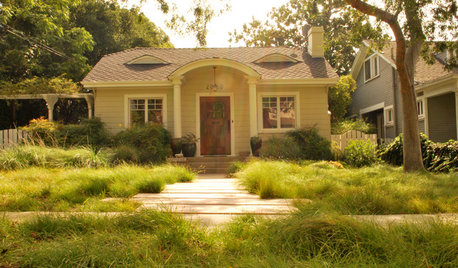
MOST POPULARMeet a Lawn Alternative That Works Wonders
Carex can replace turfgrass in any spot, is low maintenance and adjusts easily. Add its good looks and you’ve got a ground cover winner
Full Story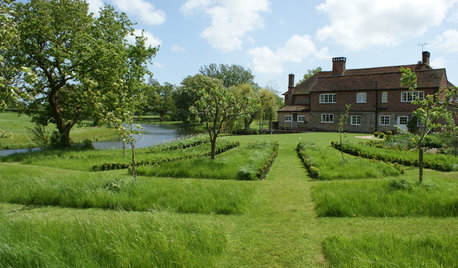
GRASSESHow to Rock a Lawn
Weekend Project: The key to healthy grass begins with the soil. If turf works for you, here’s how to fix it and keep it looking its best
Full StoryMore Discussions









macky77